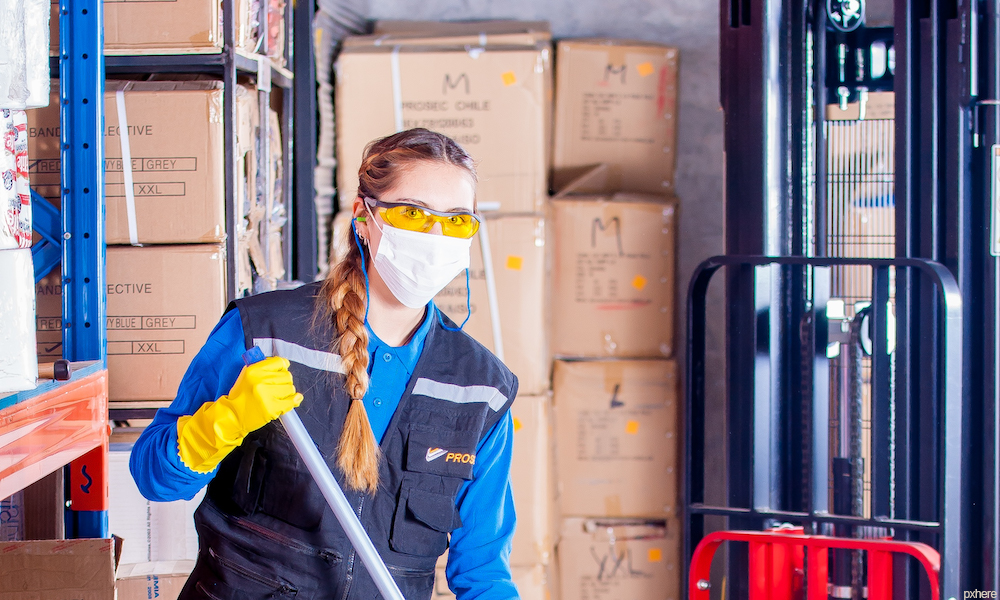Providing a workplace with appropriate PPE will help protect employees from a variety of potential health and safety risks. All workplaces should endeavour to provide clear procedures, training and adequate supervision to improve levels of safety, but there are often still risks or hazards which require a range of PPE.
When considering which items of PPE (personal protective equipment) are needed in a workplace, there a number of factors to consider to ensure everyone is adequately protected. The following items of PPE are essential pieces of equipment for almost any workplace.
Breathing Protection
A respirator is designed to protect the lungs of those who wear them, by filtering out dust, debris and chemicals to purify the air. There are many types of respirators including everything from powered and unpowered options to those which cover half the face or the full face. Disposable basic face masks are ideal for all workplaces as they are affordable and will provide protection against a variety of potential risks in the air.
Skin Protection
If skin comes into contact with chemicals or harmful materials it could lead to serious injuries or illnesses. If your employees are faced with a potential hazard, effective personal protective equipment is essential. There are a variety of items of clothing available, which are designed to provide protection from chemicals, heat and even electricity.
For most businesses, an essential for the workplace is a supply of safety gloves. Gloves will protect the skin from a wide range of chemicals, contaminants and even sharp objects. Plastic gloves are the most common type of protection, although cut-resistant gloves are also available depending on the work environment.
Eye Protection
The eyes are one of the most important areas of the body to protect, as a small accident can lead to long-term irreparable damage. Eye protection is available in many forms, from welding masks for use in factories to sunglasses for people who regularly work in the sun. Many workplaces require sets of goggles, to provide an effective layer of protection to the eye area. A strong set of goggles will protect the wearer from flying debris and dust.
Hearing Protection
Adequately protecting employees hearing is vitally important, but many workplaces struggle to assess the need for hearing protection equipment. There are environments where hearing can change gradually, making it difficult to notice the increase in risk.
Although there are options such as electronic ear muffs available, most businesses choose to invest in standard ear plugs or ear muffs. A set of ear plugs will provide quick protection from sudden loud noises, although ear muffs are better for situations where there is prolonged periods of loud noise.
Body Protection
There are types of protective clothing required to protect the overall body from harm, such as overalls and padded clothing. Although, an essential item of PPE for many workplaces is high visibility clothing, which is available as jackets, vests, trousers or complete coveralls.
The reflective properties of high visibility clothing will help the wearer stand out against their background. The items are commonly worn by those who work outside in environments such as roads, rail networks and airports. But they are often worn by key members of staff, to help them stand out in a large crowd so that they are easier to find.
All employers need to supply PPE free of charge in situations where the exposure to hazards cannot be reduced to acceptable levels through control measures. Once you have determined which items of PPE you need, the next step is educating your members of staff on how to put the items to use.
